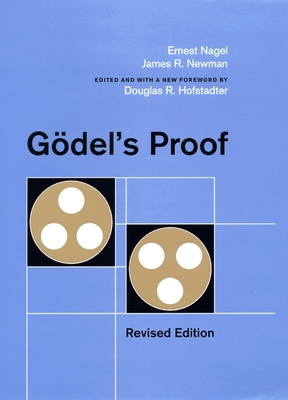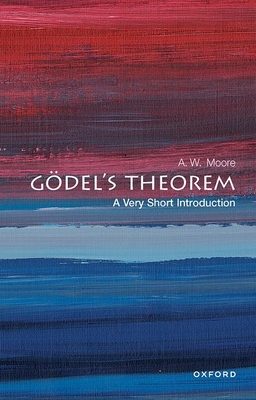


The bestselling book that has helped millions of readers solve any problem
A must-have guide by eminent mathematician G. Polya, How to Solve It shows anyone in any field how to think straight. In lucid and appealing prose, Polya reveals how the mathematical method of demonstrating a proof or finding an unknown can help you attack any problem that can be reasoned out--from building a bridge to winning a game of anagrams. How to Solve It includes a heuristic dictionary with dozens of entries on how to make problems more manageable--from analogy and induction to the heuristic method of starting with a goal and working backward to something you already know. This disarmingly elementary book explains how to harness curiosity in the classroom, bring the inventive faculties of students into play, and experience the triumph of discovery. But it's not just for the classroom. Generations of readers from all walks of life have relished Polya's brilliantly deft instructions on stripping away irrelevancies and going straight to the heart of a problem.




An accessible explanation of Kurt Gödel's groundbreaking work in mathematical logic
In 1931 Kurt Gödel published his fundamental paper, On Formally Undecidable Propositions of Principia Mathematica and Related Systems. This revolutionary paper challenged certain basic assumptions underlying much research in mathematics and logic. Gödel received public recognition of his work in 1951 when he was awarded the first Albert Einstein Award for achievement in the natural sciences--perhaps the highest award of its kind in the United States. The award committee described his work in mathematical logic as one of the greatest contributions to the sciences in recent times. However, few mathematicians of the time were equipped to understand the young scholar's complex proof. Ernest Nagel and James Newman provide a readable and accessible explanation to both scholars and non-specialists of the main ideas and broad implications of Gödel's discovery. It offers every educated person with a taste for logic and philosophy the chance to understand a previously difficult and inaccessible subject. New York University Press is proud to publish this special edition of one of its bestselling books. With a new introduction by Douglas R. Hofstadter, this book will appeal students, scholars, and professionals in the fields of mathematics, computer science, logic and philosophy, and science.


Playing logic puzzle on a daily basis helps to keep an active mind and players often see improvements in their overall concentration.
This Logic Puzzles book is packed with the following features:
- 500 Hard Adults Puzzles (Sudoku, Kakuro, Hitori, Minesweeper, Masyu, Suguru, Binary Puzzle, Slitherlink, Futoshiki, Fillomino).
- Answers to every puzzle are provided.
- Each puzzle is guaranteed to have only one solution.
- Includes free bonus puzzles you can download book (Tons of Sudoku Puzzles for Adults & Seniors)
- Includes free bonus puzzles you can download book (Word Search With Hidden Message: 102 Puzzles for Adults and Seniors)

This Easy Logic Puzzles book is packed with the following features:
- 48 Sudoku Puzzles, 36 Fillomino Puzzles, 48 Kakuro Puzzles, 32 Futoshiki Puzzles, 48 Hitori Puzzles, 36 Slitherlink Puzzles, 48 Killer Sudoku Puzzles, 40 Calcudoku Puzzles, 48 Jigsaw Sudoku Puzzles, 36 Skyscrapers Puzzles, 48 Shikaku Puzzles and 32 Numbrix Puzzles.
- Answers to every puzzle are provided.
- Each puzzle is guaranteed to have only one solution.


In the words of Bertrand Russell, Because language is misleading, as well as because it is diffuse and inexact when applied to logic (for which it was never intended), logical symbolism is absolutely necessary to any exact or thorough treatment of mathematical philosophy. That assertion underlies this book, a seminal work in the field for more than 70 years. In it, Russell offers a nontechnical, undogmatic account of his philosophical criticism as it relates to arithmetic and logic. Rather than an exhaustive treatment, however, the influential philosopher and mathematician focuses on certain issues of mathematical logic that, to his mind, invalidated much traditional and contemporary philosophy.
In dealing with such topics as number, order, relations, limits and continuity, propositional functions, descriptions, and classes, Russell writes in a clear, accessible manner, requiring neither a knowledge of mathematics nor an aptitude for mathematical symbolism. The result is a thought-provoking excursion into the fascinating realm where mathematics and philosophy meet -- a philosophical classic that will be welcomed by any thinking person interested in this crucial area of modern thought.




This completely self-contained study, widely considered the best book in the field, is intended to serve both as an introduction to quantification theory and as an exposition of new results and techniques in analytic or cut-free methods. Impressed by the simplicity and mathematical elegance of the tableau point of view, the author focuses on it here.
After preliminary material on tress (necessary for the tableau method), Part I deals with propositional logic from the viewpoint of analytic tableaux, covering such topics as formulas or propositional logic, Boolean valuations and truth sets, the method of tableaux and compactness.
Part II covers first-order logic, offering detailed treatment of such matters as first-order analytic tableaux, analytic consistency, quantification theory, magic sets, and analytic versus synthetic consistency properties.
Part III continues coverage of first-order logic. Among the topics discussed are Gentzen systems, elimination theorems, prenex tableaux, symmetric completeness theorems, and system linear reasoning.
Raymond M. Smullyan is a well-known logician and inventor of mathematical and logical puzzles. In this book he has written a stimulating and challenging exposition of first-order logic that will be welcomed by logicians, mathematicians, and anyone interested in the field.


Godel's Proof was first published in the US in 1958. In 1931 there appeared in a German scientific periodical a relatively short paper with the forbidding title On Formally Undecidable propositions of Principia Mathematica and Related Systems. Its author was Kurt Godel, then a young mathematician of 25 at the University of Vienna who since 1938 was a permanent member of the Institute for Advanced Study at Princeton. The paper is a milestone in the history of logic and mathematics. When Harvard University awarded Godel an honorary degree, the citation described the work as one of the most important advances in logic in modern times. At the time of its appearance, however, neither the title of Godel's paper nor its content was intelligible to most mathematicians.

